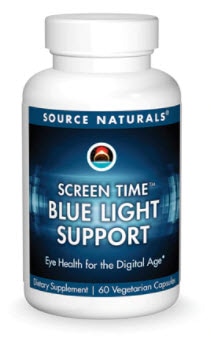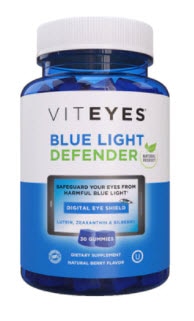At the cusp of the one-year anniversary of the coronavirus pandemic, all of us are probably guilty of trodding a slippery path into a potentially all-consuming digital life. Even before the pandemic, a March 2015 Nielsen report, which measures American media consumption, found that adults age 18 and older spend more than 11 hours each day using electronic devices.
Now, chances are, screen time has increased. It’s called hella screen time, and those hours can take their toll on your mental health, social life, physical aches and pains, and even your skin. Maybe you secretly fear that the days of limiting screen time are over, and it’s just a free-for-all free fall into a world governed by screens.
To temper that fear and add ballast for achieving some sort of digital/in real life balance, here are five of the ways that too much screen time can affect your health.
5 Effects of Screen Time on Health
1. Depression
The longer you spend in front of a screen, the more you might be prone to depression. That’s the conclusion of a bevy of studies that show a correlation between screen time and depressive systems. Of course, it could go both ways: Screen time can lead to depression, but depression can also lead to more time in front of a screen.
Try: First and foremost, excessive screen time can lead to a lack of socialization, which in turn may trigger anxiety and depression. Make a walking date with a friend, try to catch the sunrise or sunset, or plan one for the middle of the day to stretch your legs and step away from the screen. Walking with friends gets you moving, gets you outside, and gets you talking, all of which are good medicine for depression.
2. Text neck
You’ve seen classic text neck: the head curled forward at an awkward angle, chin practically piercing clavicle, phone cradled into belly. A study from the Harvard School of Public Health, Brigham and Women’s Hospital, and Microsoft suggests that holding a tablet too low in your lap tweaks the small, interlocking bones at the top of the spine (the cervical vertebrae) and the neck muscles into an unnatural posture, leads to strained muscles, nerves, tendons, ligaments, and spinal discs.
Basically, the trifecta of head forward, shoulders rounded, and back slumped does bad things to your body. This is true because the human head weighs roughly 10 pounds. When that weight tilts forward, your neck has to pick up the slack.
Try: To counterbalance the downward pull of your muscles, try looking up at the ceiling. Key point: Rather than rounding your shoulders forward, picture keeping them square. Visualize your chin floating to the sky, your collarbones wide and open, and your shoulder blades draping down and wide. Let your jaw relax and open your mouth. Now see if you can bring your head further back an inch or two (typically you can). Open and close your mouth, feeling the stretch in the front of your neck.
3. Brain drain
According to a plethora of studies, the verdict—a large amount of screen time as an adult can restructure the matter that makes up your brain. In particular, this refers to gray matter, which processes information in the brain, and white matter, which transmits messages between neurons. Generally speaking, screen addiction is linked to gray matter atrophy, white matter’s impaired communication, increased cravings and poorer cognitive performance.
Try: One of the best ways to repair or strengthen gray matter is to turn your eyes on the prize—inward, that is. At least dozens of studies suggest that a consistent meditation practice can produce changes over time in gray matter density. One study, led by Harvard-affiliated researchers, found meditation “increased gray-matter density in the hippocampus, known to be important for learning and memory, and in structures associated with self-awareness, compassion and introspection.”
4. Skin damage
All screens emit a blue light, part of the spectrum of visible light that’s a high-energy, short-wavelength light. Though the effects of blue light on the skin are yet to be fully understood, it can cause hyperpigmentation and premature aging. One of the ways it does that is by causing oxidative stress, which destroys collagen. According to the New York Times, there’s “a chemical in skin called flavin absorbs blue light. The reaction that takes place during that absorption produces unstable oxygen molecules (free radicals) that damage the skin.”
Try: Fight brown spots and loss of collagen, aka skin elasticity, by amping up your skin care routine, making sure to moisturize (seek out formulations that favor protective antioxidants and use sunscreens which can block UV light as well as blue light). A few forward-thinking brands have actually formulated blue light-fighting products: Try Derma E Blue Light Shield Concentrated Serum, $18, vitacost.com.
5. Myopia
World over, blue light has been reported to contribute to eye strain as well as cataracts, glaucoma, and other eye diseases. When you focus your eyes on screens—be they computer screens, television screens, tablets or smartphones—you are engaging in what is known as near work. An abundance of studies link an increase in screen time or near work to a dramatically higher chance of getting myopia, or near-sightedness.
Try: The number one thing you can do for screen induced eye strain is take frequent breaks, preferably out in nature, where you can practice your farsighted vision, as a way to temper the glut of near work. You can also try supplements specifically formulated with lutein (a key nutrient for eye health) to support blue light exposure, such as Source Naturals Screen Time™ Blue Light Support, $18, vitacost.com and Zhou Screen Eyes™ Tropical Berry, $17, vitacost.com.




